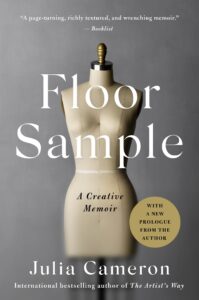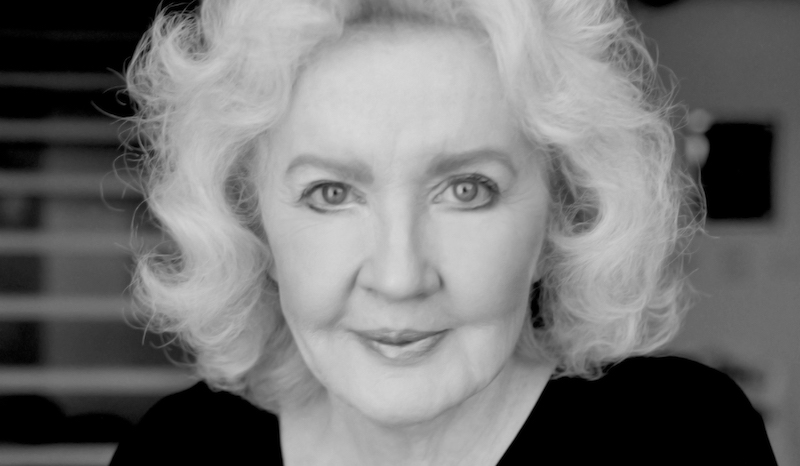Julia Cameron on Learning to Write Sober
"I was dubious about writing with such ease. Wasn’t I supposed to suffer? Wasn’t writing supposed to take everything I had?"
This first appeared in Lit Hub’s Craft of Writing newsletter—sign up here.
“How do I write sober?” was the big question that sobriety raised. I told the alcoholics who were helping me, “If it comes down to a choice between my creativity and my sobriety, I don’t know that I will choose sobriety.”
“There is no choice,” they promptly answered me. “Keep on drinking and there will be no more creativity.”
I knew that they were right. I had to find a way to work that would not require alcohol or drugs. If I were honest with myself, my methods had not really been working for some time.
“Stop trying to be a great writer,” they advised me next. “That’s your ego. Get your ego out of your writing. You should be writing from a spirit of service. You are just the vehicle, the channel. Let God write through you.”
“What if he doesn’t want to?”
“Just try it and see.” I was not at all sure that God would want to write through me. And wasn’t it only normal to want to be a great writer?
“In order to write sober, you have to let God take care of the quality,” my mentors sternly told me. “Your job is to take care of the quantity.”
It was suggested that I post a sign in my writing area, “Okay, God, you take care of the quality. I will take care of the quantity.” Then it was suggested that I set a manageable quota of daily work: three pages.
If it took all day to write three pages, I was to remain at my desk working until my quota was complete. More likely, the three pages would get accomplished quickly. When they were finished, I was done for the day. I was not to write more than three pages.
The idea that writing could be something that didn’t require my whole day was a revelation to me—and a threat. My identity was bound up with being a writer. If writing was just one of the things I did, who was I, then? I was used to the self-importance of being a writer. I had bought into the notion that artists were tormented and that their every waking thought needed to be given to their art. My new friends were suggesting that such a stance was really just an ego trip. God was the Great Creator, they pointed out. I was, after all, one of God’s creations myself.
I posted the little sign. I settled Domenica in her playpen and I started to write. My head started in: “This isn’t any good. This is terrible. You can do better. Start again.” I was used to such self-loathing diatribes while I wrote. I was used to writing and rewriting, striving for perfection. Then I remembered, “I am not supposed to be judging. I am just supposed to be writing.” Quality was up to God. I was in charge only of quantity.
Now when my head started in with its vitriol, I had an answer for it. “Good, bad, or indifferent—it’s not mine to judge.”
Imagine my surprise when my writing began to respond to this new and far more charitable agenda. Now that I was no longer judging and condemning my sentences, my prose seemed to relax a little and to straighten out. If God were indeed writing through me, God had an easier and more accessible prose style than I did. Less self-consciously clever and ego-driven, my new prose was more likable. I even liked it myself.
“There is such a thing as a rough draft,” my writing mentors advised me. “Try to simply get things on the page. They can be fixed later—if they need to be fixed, that is.”
I was dubious about writing with such ease. Wasn’t I supposed to suffer? Wasn’t writing supposed to take everything I had? If it didn’t, was it real writing?
To my surprise, the pages that I was accumulating seemed to have coherence and even flair. I began to like the three-pages-a-day quota. “Just give me a few more minutes,” I would say to Domenica when she fussed—and I would mean it. Writing seemed to happen now with insulting speed. I was still working on my movie script, The Works, and scenes and dialogue came to me readily. My characters fairly seemed to chatter. I wasn’t so much writing as I was eavesdropping. I wasn’t so much thinking something up as taking something down.
The idea that writing could be something that didn’t require my whole day was a revelation to me—and a threat. My identity was bound up with being a writer. If writing was just one of the things I did, who was I, then?The sense of direction seemed to be important. I began to experience myself as dropping down a sort of well, coming into contact with a source of creativity that flowed of its own accord, something I tapped into rather than something I generated. Creativity is a constant, I ruefully realized. When I was writing out of my ego, I was the one who was fickle. The stream of ideas was always there, ready and available. I had been too high-strung, too self-centered to be able to avail myself of it. All of this was changing, and changing rapidly with sobriety. It began to seem natural to create, not some superhuman trait for which I should be applauded. I began to have the idea that the Great Creator enjoyed my own creativity.
Rather than facing my writing day with dread, I began to look forward to it. It began to be a process of discovery. I was curious to see what would unfold next. I found myself losing my sense of myself as an “author” and gaining a sense of myself as a conduit. I found I wrote best when I felt empty of ego, curious, and receptive rather than full of ideas.
There were days when I cheated and wrote more than three pages: “I’m doing so well, I can’t stop now!” I found that as soon as I did so, my ego woke up, “proud” of what “I” had “accomplished.” The reemergence of ego was distinctly uncomfortable. I began to see the wisdom that lay in a small, modest quota, nothing to get all worked up about.
When I was tempted to binge on my work, my advisers would caution me, “Easy does it.” At first I heard this as a bromide. I thought they were telling me something like “Oh, calm down.” My ego hated the phrase “Easy does it.” My ego still wanted binges of writing, the drama of trying to write flat-out.
All too soon I learned that binges invited an equal and opposite reaction. I would binge one day and feel “dry” and “empty” the next. Instead of steady production, I would experience spurts. My progress would zoom ahead, then skid to a halt.
“Easy does it,” I was told again, and this time with a bit more explanation. “Easy does it means ‘easy accomplishes it,’” I was told. “If you are willing to go along ‘slowly,’ you will be amazed how quickly pages accumulate. Three pages a day is ninety pages a month. That’s a lot of prose.”
“Try to make your habits nonnegotiable,” I was advised. “Simply make it an unbreakable rule that you write three pages a day.”
And so I settled in, writing three pages a day, writing them often very fast and with a great deal of ease.
“This stuff can’t be any good,” my ego would protest, but I soon observed that there was very little connection between how hard my writing was to accomplish and the caliber of the work in the end.
“I am not a writer. I am a word processor,” I complained to my coaches.
“You’re writing, aren’t you?”
“Yes, I am.”
“And it’s pretty good, isn’t it?”
“Yes, I think it is.”
“Well then, who cares if you are a word processor?”
“Oh.”
Working by the “easy does it” method, I completed the entire screenplay in my first three months of sobriety. To my surprise, the script read well and the fixes required to move from first to second draft were easy to see.
_____________________________________________

From Floor Sample by Julia Cameron. Copyright © 2023 by the author, and reprinted with permission of St. Martin’s Publishing Group.




















